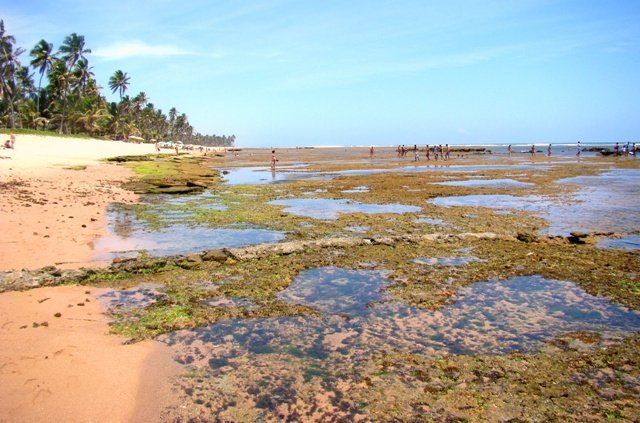Brazil has lost 80 % of the coral reef in last 50 years

The latest study by Brazil’s Environment Ministry and Federal University of Pernambuco points that Brazil has lost 80 % of the coral reef once found along 3,000 kilometers (1,864 miles) of its northeastern coast in period of merely 50 years.
According to leading researcher Beatrice Padovani, domestic, industrial and farm pollution as well as occurrence of pathogenic bacteria were factors in boosting sediment accumulation that has devastated the reef systems. Brazil coast has experienced increased tourism, urbanization, and large-scale agriculture as well as lime extraction, leading to the discharge of untreated wastes, fertilizers, and nutrients that contaminate the region’s reefs. Destruction of the Atlantic rainforest has also led to increased erosion and a high influx of land-based sediments onto the reefs.

Ronaldo Francini-Filho and Fabiano Thompson of the Universidade Federal da Paraiba, and Rodrigo Moura of Conservation International, Brazil link the global proliferation of coral diseases to elevated seawater temperature and to the human impacts. They warned that if seawater temperatures continue to rise and local threats continue to plague Brazil’s reefs, these ecosystems may collapse in the next 50 years or even sooner.
Brazil has six major coral reef areas, according to the International Coral Reef Initiative (ICRI). They start along the coast of the northeastern state of Rio Grande do Norte and run approximately 1,864 miles to Albrohos Bank, the southernmost reef in the state of Bahia. Brazil’s reef formations feature 18 species of hard coral, eight of them endemic to Brazil, according to ICRI. These are the only known coral reefs in the south Atlantic region.
Featured image credit: TravelJournals.net

Commenting rules and guidelines
We value the thoughts and opinions of our readers and welcome healthy discussions on our website. In order to maintain a respectful and positive community, we ask that all commenters follow these rules:
We reserve the right to remove any comments that violate these rules. By commenting on our website, you agree to abide by these guidelines. Thank you for helping to create a positive and welcoming environment for all.